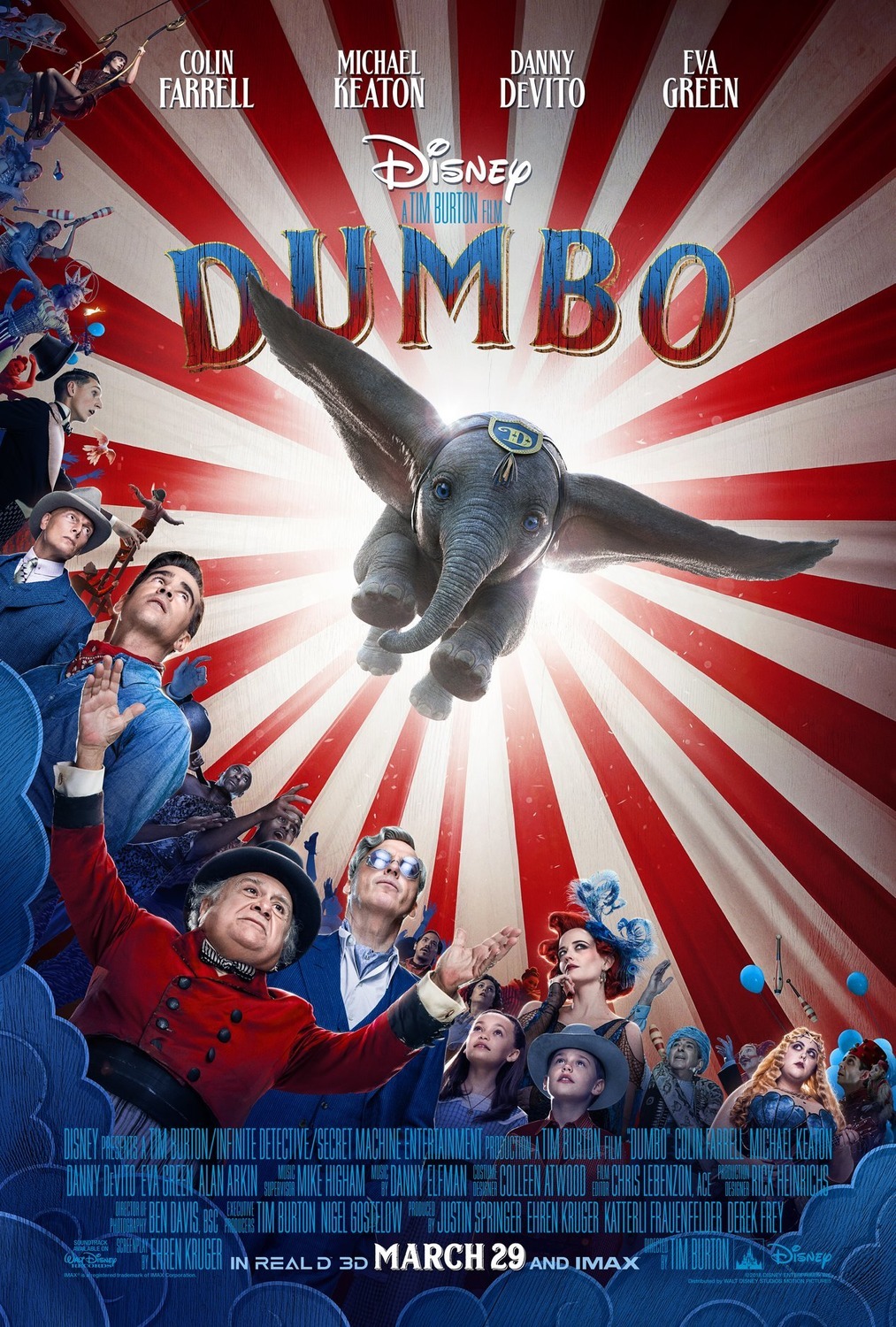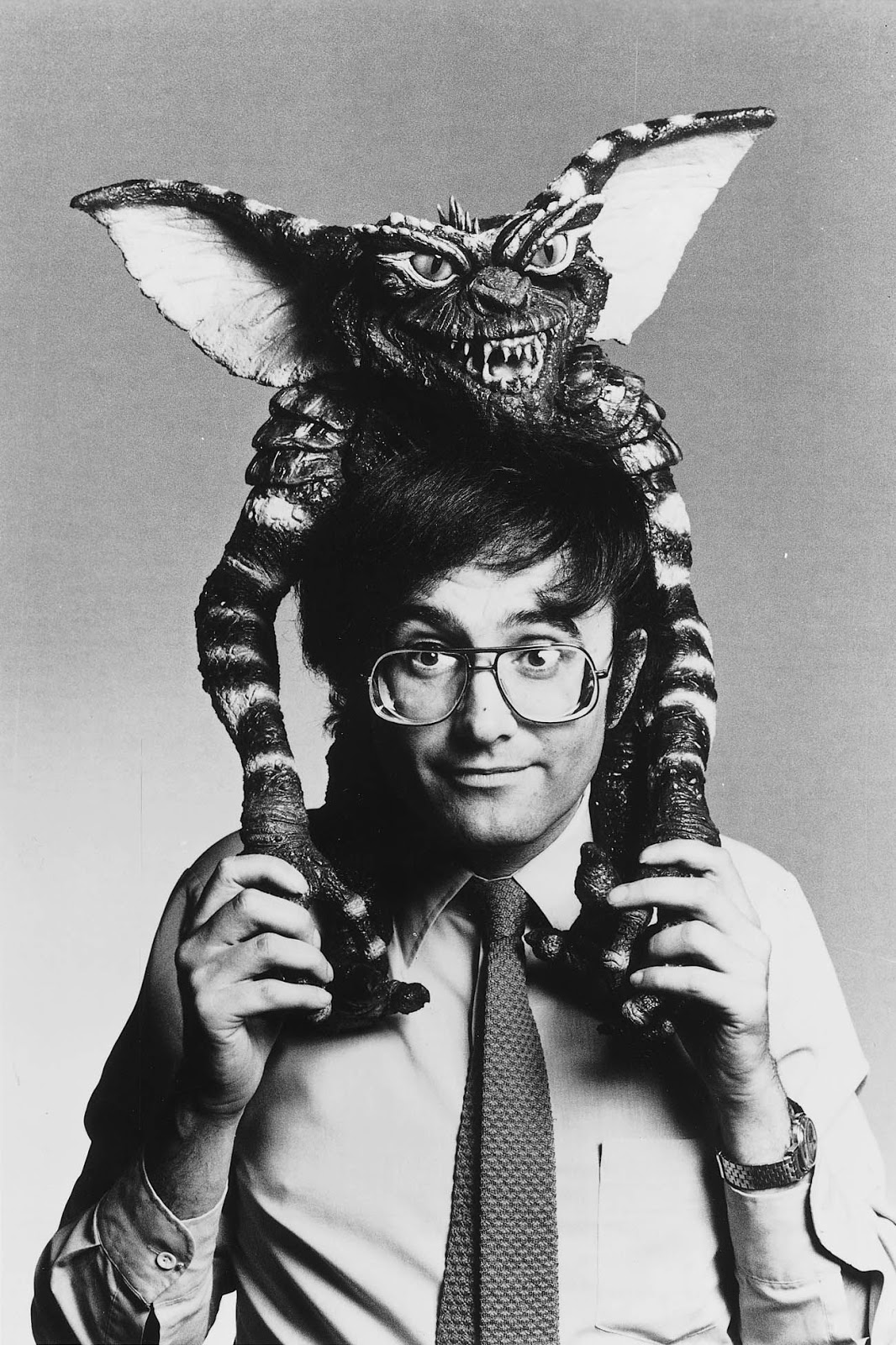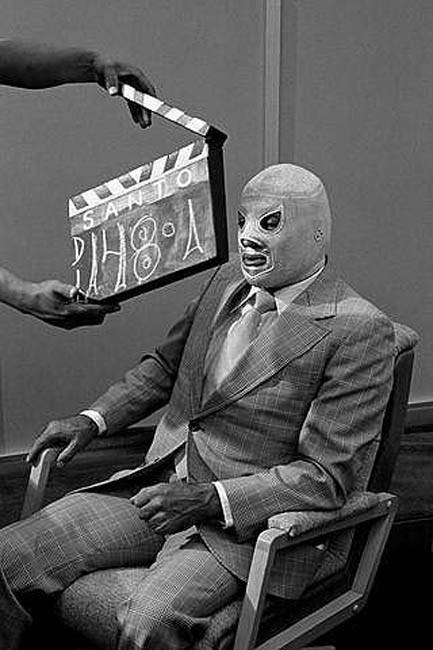Movie Review: DUMBO - You'll believe an elephant can fly
When Disney Studios made Dumbo in 1940, they seriously needed a hit. They had invested heavily in a new studio in Burbank, and World War II was hurting their business. Not counting the fact that both PINOCCHIO (1940) and FANTASIA (1940) had cost the studio over 2 million dollars (a major sum at the time) due to Walt's quest for excellence, which resulted in rather low profit margins (for the original releases, at least).
Based on an unpublished children’s book by Helen Aberson and Harold Pearl, Dumbo seemed an easier production to tackle. Closer to the feeling of the old Silly Symphonies, and even meant as a short originally, the animation, while sumptuous, never was as elaborate as with previous feature length Disney productions. Yet the story of the young elephant with freakishly large ears that would find its place in the world after facing the mockery of both its peers and humans by demonstrating its unique ability to fly would reach out to the public in need of soaring entertainment in a country about a month away from the Pearl Harbor tragedy.
 |
| The unpublished book that ended up making a mint for the Studio, all for a mere 1000$. |
It's no big surprise, when you think about it, that Tim Burton would be attracted to the story of Dumbo, as he has been the purveyor of films about rejects and outcasts who often display unique talents since the beginning of his career. And the circus setting is also a natural for him, making frequent appearances in his films over the years. “It’s funny, but I truly never liked the circus,” Tim Burton said in a recent interview. “You’ve got animals being tortured, you’ve got death-defying acts, and you’ve got clowns. It’s like a horror show. What’s to like?...This idea of feeling weird and wanting to join this mixed family of misfits and weirdos — that’s sort of the appeal of it.” This said, Burton does come to term with this Love-Hate relationship in the finale which redefines the nature of a circus, much in a way that he feels more comfortable with.
Burton's take on the story sets it apart from the 1941 original in many ways, and it's not necessarily a bad thing. The recent influx of live-action remakes of Disney animated films have both spawned uninspired clones like BEAUTY & THE BEAST (Bill Condon, 2017) (lavish, but so close to the original that it can never truly stand out and is ultimately destined to be forgotten) and surprising riffs that uses the original film as a springboard and jams with the recognizable elements to offer something both familiar and new, like Jon Favreau's THE JUNGLE BOOK (2016). DUMBO belongs to that second category.
 |
| The CGI marvel that is the new Dumbo, flanked by Colin Farrell and his onscreen kids Nico Parker and Finley Hobbins. |
Writer Ehren Kruger (THE RING, THE BROTHERS GRIMM) takes the basic premise of the animated film, and expands it dramatically, considering that Dumbo taking flight was actually the climax of the original film, whereas the avian pachyderm very soon displays his aerial talents in the new version, and flies many, many times. If anything, maybe too much, as the magic of his flight gets quickly diluted after doing the circus act not once, not twice, but at least three times. But thankfully, he shares the screen this time with a plethora of human characters all sharing the same sense of rejection and misfortune, from Colin Farrell's fading cowboy star who lost an arm in the war, to his daughter (Nico Parker) who is aiming for a career in science at a time that women still had to obtain the right to vote, all through the collection of misfits inhabiting the circus.This focus on human characters is a straight departure from the 1941 film where they were shown more often than not as shadowy figures, and centering definitely more on a collection of talking animals, including some rather unfortunate black stereotypes portrayed as crows (one of them actually named ''Jim Crow'').
The pivotal role of Timothy Q. Mouse in the original is taken over by Farrell's kids, who bond with the freakish baby elephant, and discover his rather unique set of skills. I was afraid that the inclusion of children in the story would be unbearable, but the young actors are quite capable and are never annoying. In fact they bring a lot of heart to the film.
 |
| Pencils for the stunning ''Baby mine'' scene in the 1941 DUMBO. Note the presence of Timothy Q. Mouse who only appears in a cameo of sorts in the new film. |
The award winning 1941 score by Frank Churchill and Oliver Wallace is referred occasionally by Burton's frequent collaborator Danny Elfman, making his own unique nods to ''Casey Jr.'', the glorious ''Pink Elephants on parade'' (still one of the best animated sequence in the history of the art form), and the heart-wrenching ''Baby mine'', all the while delivering one of his magnificent scores marrying a Gothic sensibility to the anarchic madness of circus life and literal musical flights of fancy.
The most fascinating aspect for me, and what makes this a particularly personal film for Burton is the major plot-line where an entertainment mogul played by a hammy Michael Keaton buys out the small family circus owned by the equally hammy Danny DeVito (reuniting 27 years after BATMAN RETURNS), hoping to exploit Dumbo's talents. There could certainly be a comment on how the original unpublished book was basically bought out from the authors for a pittance (a mere 1000$), while Disney reaped all the benefits, exploiting the character of Dumbo for all its worth. It's also hard not to see a symbol for Tim Burton's early career where he worked in the early eighties on THE FOX AND THE HOUND and THE BLACK CAULDRON for Disney, and basically felt trapped inside the Mouse who didn't know how to nurture his talent. Or could there be a more timely biting commentary on his present situation working for Disney, where he may feel like a ''CANARY IN A GOLDMINE'' like a poster on the wall of Keaton's office at ''Dreamland'' seems to hint at. If this would turn out to be the last film he did for Disney, this would be a beautifully ironic way to bite the hand that feeds him. There certainly is something in there that therapists would love to dissect for hours as Dumbo and his brotherhood of misfits escape from the crumbling remains of the ersatz Disneyland at the end of the film, in a grand anarchic Burton way, where Dumbo becomes in a way a new addition in the stable of superheroes manged by Disney.
This live-action, modern, and sometimes awkwardly ''woke'' version of DUMBO is definitely worth your time, especially if you have followed Burton's career closely. Gorgeously shot and often quite touching ,two moments made tears roll down my cheeks spontaneously; the ''Baby mine'' scene, and the stunning coda that provides the only truly satisfactory conclusion to the story of the flying pachyderm could wish for.






Comments
Post a Comment